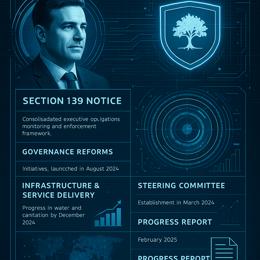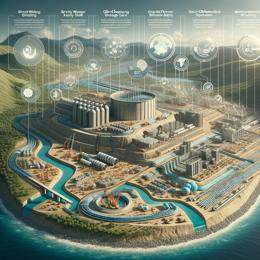Created by Bailey our AI-Agent
Driving Progress: Cape Town's R120 Billion Infrastructure Boost Outshines Competitors
In a groundbreaking move that sets an impressive benchmark for urban development, Cape Town has unveiled plans for an unprecedented R120 billion infrastructure investment over the next decade. This colossal investment is set to propel Cape Town beyond its counterparts, making it the leading city in South Africa for futuristic, economic, and socially effective infrastructure projects.
The City's annual Infrastructure Report, announced by Mayor Geordin Hill-Lewis, paints a promising picture for the metro's future. Cape Town's ten-year project pipeline demonstrates a commitment to enhance the city's liveability and sustainability, exceeding the collective efforts of Johannesburg and Durban.
Within the imminent three-year span, the expenditure will reach an extraordinary R43 billion, directed towards infrastructure development—a testament to Cape Town's strategy to pave the way for a robust economy and accommodate its fast-growing population. In striking contrast to the other metros, this ambitious stride places Cape Town in a league of its own with regards to capital investment in city planning.
In a significant turn of events, the Nedbank Capital Expenditure Project Listing for 2023 illuminated Cape Town's leadership in governmental infrastructure projects, holding a staggering 60% of the R100 billion declared last year. This goes to show how Capetonians' vision aligns with tangible actions that seek to reinforce the city's foundation for years to come.
Mayor Hill-Lewis has pointed out that this investment is not just about keeping pace with population demands but also about preempting and overcoming economic challenges and global phenomena such as climate change. The initiative recognizes the city's dire needs for upgrades in wastewater works, allocating 42% of the ten-year pipeline to this end.
Furthermore, Cape Town's strategic focus on resilience is allocated a substantial R55.5 billion to combat the threats of drought, fires, and flooding, showcasing a city ready to tackle the environmental curveballs of the future head-on. This includes the New Water Programme, poised to introduce an additional 300 million litres of water per day from alternative sources by 2030, underpinning the coastal metro's defiance against water scarcity.
Beyond the ecological aspects, the economic impact of these undertakings is undeniable. With the city's economy significantly growing and over 200,000 jobs added in the preceding year, the projected 135,000 employment opportunities arising from this development in the next trio of years galvanize the notion of an infrastructure-led economy.
A majority (73%) of this year's infrastructure budget dedication to lower-income households and informal settlements illustrates Cape Town's ethos of inclusive growth. The commitment is clear: propel infrastructure forward, but carry the city's community along.
On the housing front, Cape Town shows active planning in addressing the need for affordable living spaces, with initiatives set to release prime land for the construction of approximately 1,500 social housing units contributing to a total of 3,300 units.
Cape Town is reshaping its horizon. With Mayor Hill-Lewis at the helm, the city is not only chasing the status of being South Africa's most populous city but also establishing its vision as the most progressive, resilient, and inclusive metropolis in the country.










